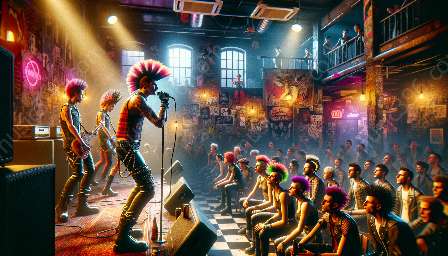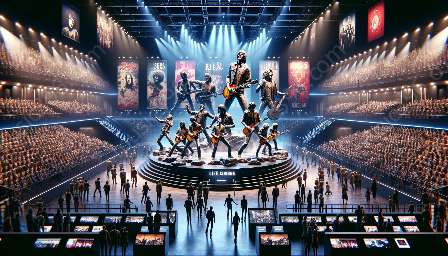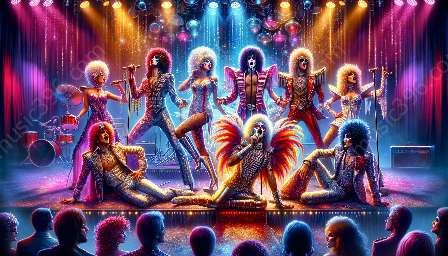Rock music has been a powerful medium for expressing social and political messages, reflecting the values and concerns of each era. From the countercultural movements of the 1960s to the protest songs of the 21st century, rock music has played a crucial role in shaping the political and social landscape. This article explores the evolution of social and political messages in rock music lyrics, and how they align with the current trends in rock music.
The Evolution of Social and Political Messages in Rock Music
Rock music has often been associated with rebellion, nonconformity, and challenging the status quo. Throughout its history, rock musicians have used their lyrics to address a wide range of social and political issues. In the 1960s, during the height of the civil rights movement and the Vietnam War, artists like Bob Dylan, The Beatles, and The Rolling Stones were prominent figures in the protest song movement. They used their music to voice their opposition to war, advocate for civil rights, and criticize government policies.
As rock music evolved in the 1970s and 1980s, punk and new wave bands emerged, bringing with them a new wave of social and political commentary. Bands like The Clash and The Ramones tackled issues such as unemployment, disenchantment with mainstream society, and economic inequality. Their lyrics reflected the disillusionment of the working class and the desire for change.
In the 1990s, the grunge movement introduced a sense of angst and alienation, with bands like Nirvana and Pearl Jam addressing issues of depression, apathy, and social alienation. These themes resonated with a generation struggling with economic instability and a lack of opportunity.
Today, rock music continues to be a platform for addressing contemporary social and political issues. Artists such as Green Day, Rage Against the Machine, and System of a Down use their music to critique corporate greed, government corruption, and societal injustices. In an era marked by political polarization and social unrest, rock music remains a vital outlet for expressing dissent and challenging the status quo.
Trends in Rock Music and Their Impact on Social and Political Messages
The trends in rock music have a significant impact on the expression of social and political messages in lyrics. As the genre continues to evolve, so too do the themes and issues addressed by rock musicians. The rise of subgenres like alternative rock, indie rock, and emo has diversified the range of topics explored in rock music.
Alternative rock, for example, has allowed for a more nuanced examination of societal issues, including mental health, addiction, and personal struggles. Bands like Radiohead and Arcade Fire have delved into complex themes of existentialism, technology, and the human experience, adding depth and introspection to the social and political discourse within rock music.
Indie rock has contributed to a more eclectic and localized approach to social and political messaging. With its focus on DIY ethics and independent expression, indie rock has provided a platform for artists to address local issues, community activism, and grassroots movements. The lyrics of bands such as Arcade Fire and The National often reference specific places, events, and social dynamics, offering a more intimate and personal perspective on political and social issues.
Emo, characterized by its emotional intensity and confessional lyricism, has played a role in destigmatizing mental health struggles. Bands like My Chemical Romance and Dashboard Confessional have openly discussed anxiety, depression, and emotional turmoil, bringing these issues to the forefront of rock music. This has helped to foster a more open dialogue about mental health and emotional well-being within the larger social and political context.
The Impact of Rock Music on Society and Politics
Rock music has had a profound impact on society and politics, serving as a catalyst for change and a reflection of cultural shifts. The connection between rock music and social movements has been instrumental in shaping public opinion and raising awareness of critical issues. Through its powerful and emotive lyrics, rock music has been able to mobilize audiences and inspire collective action.
Protest songs have been a particularly potent force in galvanizing social and political movements. From the civil rights era to the anti-war demonstrations of the 1960s, and the Occupy Wall Street protests of the 21st century, rock music has provided an anthemic soundtrack for activism and resistance. Songs like John Lennon's 'Imagine,' Bob Marley's 'Get Up, Stand Up,' and Public Enemy's 'Fight the Power' have become rallying cries for social justice and equality.
Beyond protest songs, rock music has also influenced public discourse and challenged prevailing norms. By addressing taboo subjects, critiquing institutional power, and amplifying marginalized voices, rock musicians have broadened the scope of societal conversations. Issues such as gender equality, LGBTQ+ rights, and environmental sustainability have been brought to the forefront through the lyrics and advocacy of rock artists.
Moreover, the cultural impact of rock music has extended into the political sphere, where musicians have used their platform to engage with political leaders, advocate for policy change, and influence public opinion. Rock concerts and music festivals have served as sites for political mobilization and awareness campaigns, uniting diverse audiences around common causes and social movements.
Conclusion
As an ever-evolving art form, rock music continues to shape and reflect the social and political landscape. From its rebellious origins to its current diversity of styles and messages, rock music has remained a powerful vehicle for expressing dissent, advocating for change, and challenging prevailing norms. By examining the evolution of social and political messages in rock music lyrics, and their alignment with the trends in rock music, we can gain a deeper understanding of how this genre continues to impact society and politics.


















































